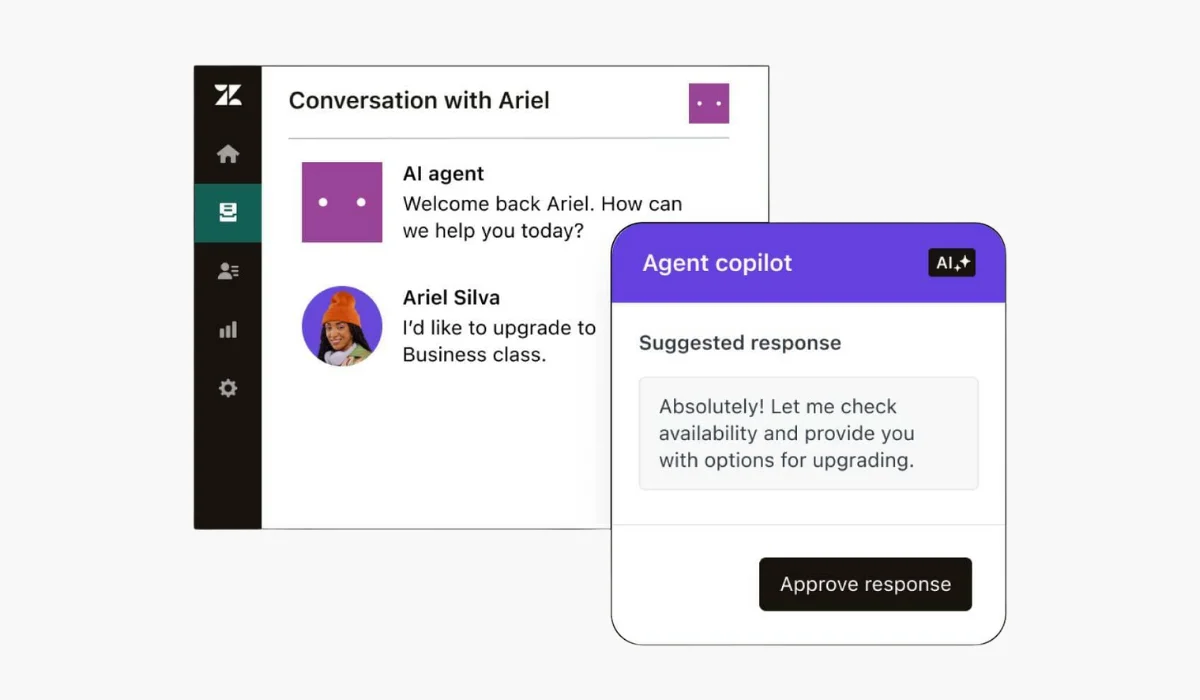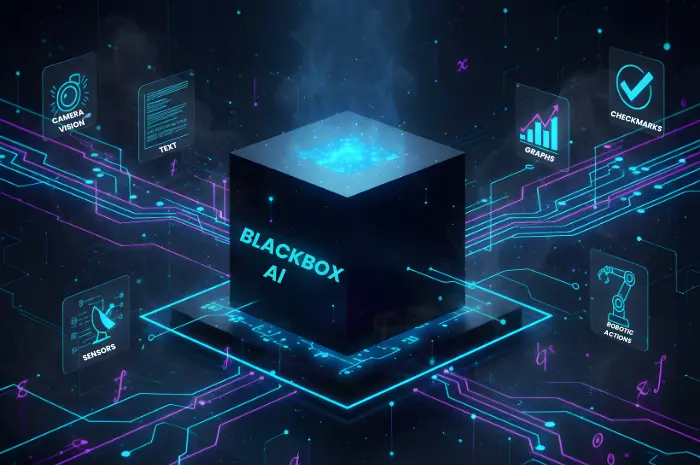What if your support team could deflect nearly half of incoming tickets, reduce total ticket volume by 50%, and still manage to raise customer satisfaction by more than 9%? That’s not just wishful thinking, it’s entirely achievable with the right AI agents for customer support in place.

By combining automation with emotional intelligence, like detecting customer sentiment in real-time, AI agents can do more than just resolve queries. They turn each interaction into an opportunity to deliver a better experience. But with so many agents now available, how do you know which ones are actually worth your time and investment?
To help simplify your decision, we have reviewed and compared some of the top-performing AI agents available. Whether you are aiming to scale globally or ease the pressure on your support team, the following options are designed to meet a wide range of business needs.
Which is the Best AI Call Center Agent For My Business?
Your customer service team can now delegate 75% of customer inquiries to AI agents without monitoring or guiding them. But that will happen only when you pick the right one. Check out our list of best AI in the store for customer support agents.
1. Zendesk AI

Best for: Enterprise-level support operations with high ticket volumes
Zendesk’s AI offering includes tools like Answer Bot and AI Copilot, which are designed to automate interactions across email, chat, and social media channels. It uses advanced NLP to interpret customer intent and respond accordingly, drawing on knowledge base content for accurate replies.
Key Features:
- Route support tickets to the right human agents based on sentiment and query intent
- AI Copilot suggests real-time responses and streamlines workflows
- Predictive analytics to enhance CSAT outcomes
- Multilingual support for international teams
Why Zendesk AI Stands Out
It integrates smoothly with platforms like Salesforce and Slack and supports custom APIs, making it well-suited for complex environments. Setup takes around 2–4 weeks, assuming a well-maintained knowledge base is already in place. Despite its enterprise-grade features, it’s still manageable for non-technical users thanks to its intuitive dashboards.
Pricing starts at $55 per agent/month, making it more appealing to larger organizations with high ticket volumes.
Limitations: While powerful, Zendesk AI requires a robust, up-to-date knowledge base to deliver consistent results. Its pricing might not align with the budgets of smaller businesses.
2. HubSpot’s Breeze

Best for: SMBs looking for fast deployment and native CRM integration
Breeze is HubSpot’s AI agent within Service Hub. Built on GPT-4, it focuses on delivering fast, human-like responses without coding expertise. Its deep integration with HubSpot CRM makes it especially convenient for growing teams.
Key Features:
- Automates 77% of ticket resolutions using approved content
- Provides contextual summaries when handing off to human agents
- Real-time reporting on sentiment and resolution rates
- Ready-to-use templates for rapid setup
Why Choose Breeze
Breeze is ideal for teams that want to start quickly as deployment usually takes 1–2 weeks. It integrates natively with HubSpot tools and can be extended to other platforms like Slack using Zapier.
Pricing starts at $90 per seat/month, making it a solid fit for SMBs. While it offers good value, it’s more limited in handling complex workflows than enterprise platforms.
Limitations: Breeze might not be the right fit for large organizations or those needing advanced reporting and customization.
3. Intercom’s Fin

Best for: Mid-sized businesses prioritizing brand alignment and flexibility
Fin is powered by OpenAI’s language models and tailored to provide brand-consistent replies. It integrates with knowledge bases to learn over time and supports various channels like chat, in-app messaging, and websites.
Key Features:
- Customizable tone and language to match your brand voice
- Works across multiple platforms with consistent performance
- Analytics highlight content gaps and unresolved questions
- Human handoff is seamless when needed
Why Fin is a Good Fit
Fin easily integrates with platforms like Zendesk, Salesforce, and Slack, supporting API-based customization. Depending on your knowledge base readiness, setup usually takes 1–3 weeks.
Pricing is usage-based, at $0.99 per resolution (plus base Intercom plan starting at $29/user/month). This makes it an affordable AI call center agent for low to moderate volumes, though costs can rise with higher ticket traffic.
Limitations: While Fin is easy to set up and use, it may lack some enterprise-level compliance features. The pay-per-resolution model also requires careful monitoring for high-volume environments.
4. Ada

Best for: Enterprises that deal with customers from different regions that speak different languages.
Ada is built to support large, diverse customer bases. It automates over 70% of inquiries and can respond in over 50 languages. It integrates with tools like Salesforce, Twilio, and Contentful, making it a strong choice for global organizations.
Key Features:
- Uses retrieval-augmented generation (RAG) for contextual replies
- Proactively identifies and resolves common customer issues
- API-first design for deep customization
- Multilingual capabilities to support global customers
Why Ada Makes Sense for Larger Teams
Ada is ideal for organizations with multilingual requirements or complex customer journeys. It typically requires 3–5 weeks to implement and some technical expertise for full integration.
Pricing and Limitations: Price is customized based on company size and usage needs. While flexible and powerful, Ada’s setup complexity and pricing may not suit smaller teams or those without technical resources.
5. Tidio’s Lyro

Best for: Small to medium e-commerce businesses
Lyro is designed for online retailers. It uses natural language processing and a no-code interface to automate common customer queries, such as order tracking.
Key Features:
- AI Phrase Matcher for relevant, human-like replies
- Ready-to-use templates for quick deployment
- Reply Assistant enhances agent productivity
- Work with Shopify and WooCommerce
Why Lyro Works for E-Commerce
Lyro can be live in about a week, even for teams without technical expertise. It’s priced at $239/month for 2,000 tickets, offering strong value for small online businesses.
Considerations: Lyro’s focus is quite narrow as it’s built for e-commerce and may not adapt well to other industries. Its analytics and compliance features are also more limited compared to enterprise tools.
What to Look For in AI Customer Service Agent
Choosing the right AI agent for customer support can be challenging, but focusing on a few key features makes the process more manageable:
.webp)
1. Automation Capabilities
Look for tools that automate at least 60–70% of your support queries. This will reduce agent workload and improve response times. If that’s your priority, go with Breeze and Lyro.
2. Integration Options
Your AI call centre agent should integrate smoothly with your CRM, help desk, or e-commerce tools. To do so, choose Zendesk and Ada.
3. Multilingual Support
If you serve customers across different regions, multilingual capability is critical. Ada supports 50+ languages and has helped businesses improve CSAT through localized support.
4. Analytics and Insights
Choose tools that offer detailed analytics to identify trends, sentiment shifts, and content gaps. Predictive analytics, like those in Zendesk, can directly influence business outcomes.
5. Support for Human Agents
AI should not replace your team. Features like contextual handoffs (Fin) and live response suggestions (Zendesk Copilot) help agents respond more effectively and avoid burnout.
Try Before You Decide
Most AI customer support agents offer free trials or demos to test real-life scenarios and ensure they are a good fit. So, go with the trials and observe how well the AI handles workload, complex tickets, and give instant support.
Need an AI Agent for a Different Use Case?
Contact us. We support diverse industries with our AI agent development services that fit into a myriad of use cases. Reach out for a free consultation.






